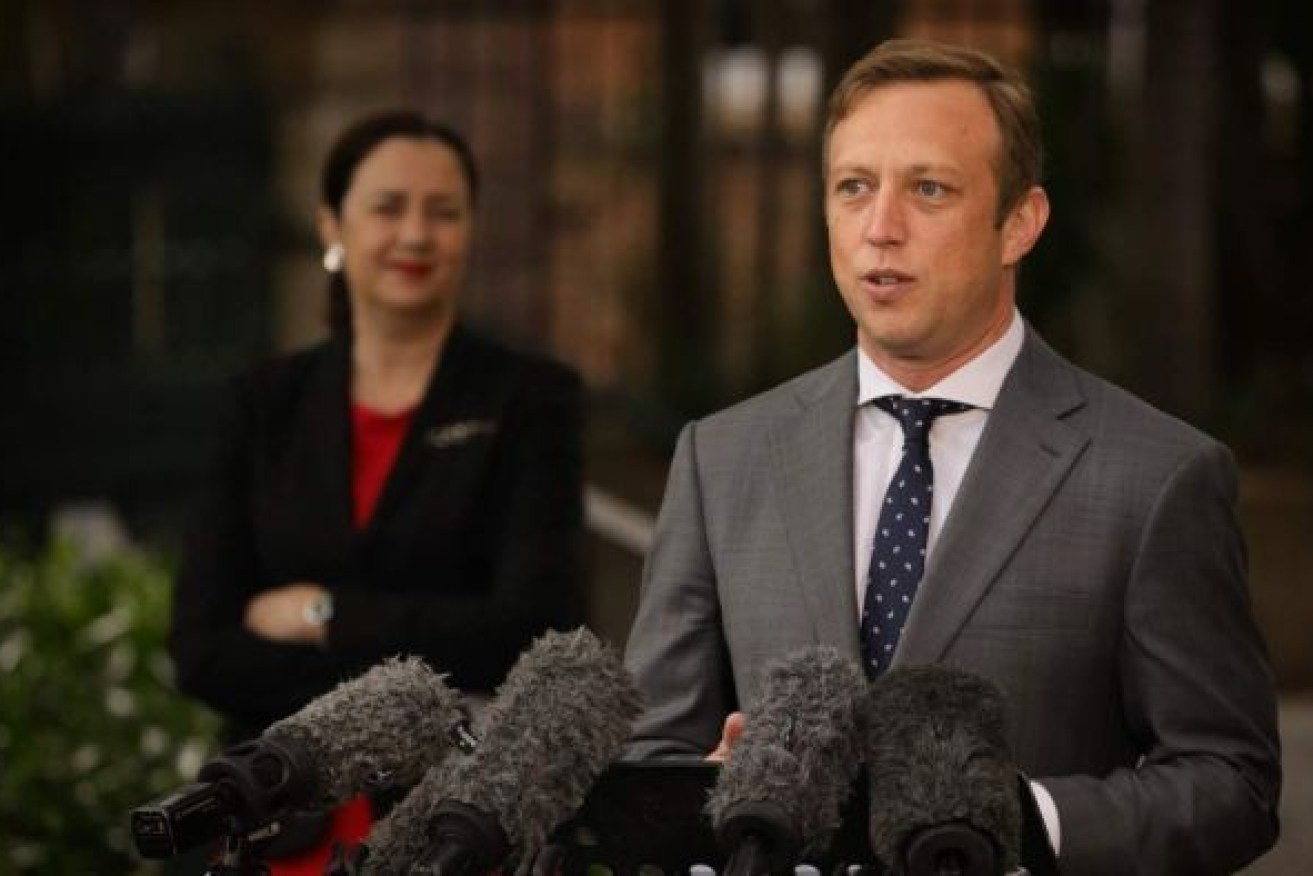The culture of complacency: Coaldrake lays bare perils of a long-term government
Peter Coaldrake’s interim report into culture and accountability in the Queensland public service reveals the disease of many multi-term governments – complacency, writes Robert MacDonald.


Deputy Premier Steven Miles has committed the government to implementing any recommendations of the Coaldrake inquiry. (Photo: ABC)
The Palaszczuk Government surely couldn’t have been surprised by Professor Peter Coaldrake’s interim report into culture and accountability in the Queensland public service.
Bumptious young political minders bossing around bureaucrats, public servants second-guessing or shielding their minister from bad news, lobbyists operating in the shadows.
They’re all the symptoms of a government suffering from the disease of complacency brought on by longevity.
“We’ve never said we were perfect,” Deputy Premier Steven Miles said, offering the defence of either an unquestioning innocent or a cynical politician.
Miles some months back dismissed the integrity questions swirling around the government as just “the vibe” – nothing concrete enough to be investigated.
He missed the point that the vibe itself is an important part of maintaining public faith in government integrity.
Think about it this way.
Imagine a legal system where you could hire someone to chat to the judge before your trial, just to see if he or she might bend the rules for you.
It’s not allowed of course. It’s called corruption.
But this is exactly what’s happening all the time in the executive arm of government – the bit run by politicians.
People are endlessly paying experts to convince the politicians in power to bend the rules, just a bit – a tax break or an exemption from planning rules for this or that project perhaps.
It’s called lobbying.
That’s how democracy works you might say. Politicians are the elected servants of the people and we, the people, have the democratic right to try to influence their decision-making.
But that’s an argument that assumes transparency of process and equal access for all.
Get that wrong and you end up with the wrong sort of vibe – the growing public sense that insiders with the right connections are getting favoured treatment.
Coaldrake’s interim report provides substance for concerns that the system’s not working the way it’s supposed to.
“Unfortunately, there is declining confidence that government across the board are making the best decisions rather than decisions influenced by those with the most effective voice,” Coaldrake writes.
“In Queensland recently, this has been accentuated by the dual roles of lobbyists – acting as clients to influence government, then acting for political parties to win elections.
“This can leave the public sceptical about even the strongest protections against conflict.”
Coaldrake’s final report is due in June and Miles seems to have already committed the Government to adopting all the recommendations, whatever they might be.
“We commissioned this report, we will hear the findings, and implement them.
“This is a government determined to continue to do better, to take on advice about how to do better,” he said last week.
Those are the right words of course but the fact remains the Palaszczuk Government has now been in office for more than seven years and over that time has developed some pretty bad habits.
Take the lobbyists register. Then-Premier Anna Bligh introduced this in 2009 so that the public would know who lobbyists were meeting with in government, and why.
But Coaldrake notes that in the six months to June 2021, lobbyists registered 39 per cent of their meetings as “commercial-in-confidence” and 19 per cent as “‘other”.
“This review also notes a preponderance of contacts described as the equally vague “introduction” or “development or amendments of a government policy or program”, Coaldrake writes.
“This implies artistic obscuring of the purpose of registered meetings”.
There’s nothing overtly corrupt in this behaviour – it’s within the written rules – but it does suggests a certain trickiness.
Then there’s the problem of ministerial staff overreaching their authority by telling public servants what to do.
Queensland has a 17-page code of conduct, which specifically tells ministerial staffers not to “direct, or attempt to direct, a public service employee unless you are acting under the express direction or expressly on behalf of a person with authority to direct a public service employee”.
But, as Coaldrake reports, “the review was told on a number of occasions that one frequent overreach is when ministerial officers appropriate the authority of their ministers in directing public servants to undertake certain tasks”.
And although there might be a code of conduct, Coaldrake says “awareness and observance of the code is uneven”.
In other words, not much more than integrity-patterned window dressing. “Look, we’ve got a code of conduct.” But why have it if you don’t adhere to it?
The Coaldrake review is timely but would have been unnecessary if the Palaszczuk Government had been rigorous in maintaining its self-declared high standards of ethical behaviour and integrity.
As it is, the interim report paints a picture of a government comfortably settled into its own ways of doing things and grown accustomed to cutting a corner here or there.
Not in any consciously corrupt way perhaps. But still, Coaldrake does appear to have uncovered behaviour that could be classed, in the best light, as too smart by half.
Whatever the case, there is definitely a vibe and it’s not good.












